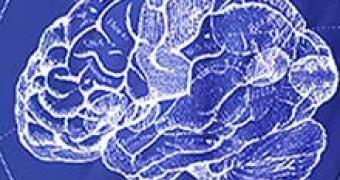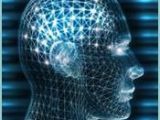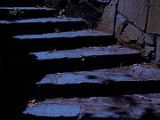Ever had the feeling that you're in a place that you know you're visiting for the first time but strangely enough, it's all very familiar to you? Or ever had the feeling that the topic you and a friend are debating has been discussed before, even though you know your memory cannot play tricks on you? Or maybe you saw one of your friends doing something, a minor thing like opening a door or reaching for a coffee mug and suddenly you had the feeling you knew before that you are going to witness this image. This is what people and scientists generally call a deja vu. Although it's really not something of utmost importance to the rest of the world, in the sense that it cannot bring profound insight into one of the world's leading problems at the moment, it still has a deep impact on most of us. Approximately 60 to 70 per cent of the global population admits that they have experienced d?j? vu's one way or another, from the minor forms like the ones I mentioned above to the ones that consist of a whole series of deja vu moments like maybe whole conversations or an entire event.
But what is a deja vu? The term was coined in 1876 by French scientists Emile Boirac in his book called "L'Avenir des Sciences Psychiques". Although he was among the first to study this bizarre phenomenon, about which we know so little and for no small reason, since it involves the complex human mind, he didn't make in depth investigations. Deja vu means "already seen"; term variations of deja vu, include deja vecu, meaning "already experienced", or deja senti, meaning "already felt". Deja vu is, in layman terms, a human perception about something that was recently experienced or seen before the person involved knows he/she hasn't. A common misinterpretation of the term is related to precognitive experiences or dreams, where the person knows exactly what is going to happen and it turns out that he/she is right. This theory was supported by many, starting from Swiss scientist Arthur Funkhouser, then by aeronautical engineer J.W. Dunne who actually conducted studies on this matter in 1939, and Nancy Sondow, who also ran a study in 1988 with almost identical results. Nevertheless, the distinction between the two is that while deja-vu's are experienced DURING an event, precognitive experiences occur BEFORE something actually happens.
If we try to define this phenomenon in medical terms, we are bound to get chills up our spines since this is an extremely slippery area in matters of science. One of the most used and most, shall we say, contemporary definitions of deja vu was given in 1983 by Dr. Vernon Neppe, Director of the Pacific Neuropsychiatric Institute in Seattle, who came up with four subcategories of deja vu: the associative type is practically the most common of all deja vu's experienced by healthy normal people and it is based on the idea that a person sees, hears, smells, experiences altogether, something that produces the feeling that one associates with something they have seen, heard, smelled, experienced before. The biological deja vu is usually experienced by those with temporal lobe epilepsy, who have deja vu episodes before a seizure. People with this kind of condition enabled doctors identify the areas in the brain that produce the deja vu signals. The other two subcategories, the subjective paranormal and the schizophrenic ones are actually not as difficult to imagine as their name makes them sound: deja vu occurs as a consequence of other important psychiatric disorders, like anxiety, depression (for the first case) and schizophrenia (for the second) in which people truly believe they've experienced something that resembles a vision of the future.
The reasons why deja vu's are difficult to study and they lack adequate explanations is because there are no symptoms to announce their arrival, they are brief, they happen only to some people, not all, and there are no physical manifestations, except for the fact that the person says that he/she just had a deja vu episode. Researches on the matter either lack information or credibility. For example, the subconscious-obsessed Sigmund Freud stated that these deja vu experiences are the consequence of repressed desires or memories related to a traumatic event and this theory about the so called "paramnesia" has dominated the 20th century science in regard to this area. (I somehow fail to understand how seeing someone reaching for the door knob or for a cup of coffee, or whatever other trivial thing, can be the consequence of a repressed desire or memory about a stressful event but then again, I am not Freud, nor do I like him). Although at some point scientists ceased to research on the deja vu's because these episodes had grown to be associated with past life experiences, ESP (extrasensory perceptions) and even... alien abductions, recently they have become more popular among men and women of science who began using brain imaging technology in order to understand once and for all what deja vu's are.
What have recent studies revealed so far? Nothing original (I might as well call it a deja vu) and nothing precise. For example, it has been discovered that deja vu's occur to 60 per cent of the people, but they are more frequent in teenagers, aged 15 to 25; those with higher incomes (whatever the importance this fact may have), those who travel more, those with higher education levels, those who generally possess an active imagination and the ability to recall dreams, those who are more tired and stressed (or the opposite, more refreshed and relaxed) have higher chances of experiencing deja vu episodes. People who were really interested in this subject, like Alan Brown and Elizabeth Marsh at Duke University and SMU, ran a few tests on a group of students, based on the idea that deja vu's originate in subliminal suggestion. What they've come up with was the cell phone theory (or divided attention), which means that whenever we are distracted by something, we nevertheless are still aware of everything that is going on in secondary or third action planes although we don't register it consciously. When we come back to what we were doing before the distraction occurred, whatever surrounds us seems a lot more familiar even though it shouldn't be. Hermon Sno, a Dutch psychiatrist came up with another theory, the so called Hologram Theory, saying that memories are like holograms, meaning anyone can recreate a full image from any fragment of the whole. In his opinion, deja vu episodes occur when a small detail in an environment we are part of, is similar or maybe identical to a "leftover" of some memory in our past which, in turn, prompts the brain to recreate a whole image from that bit. Then, we have Robert Efron, who came up with another valid theory in 1963, called dual processing (or delayed vision) theory. He stated that given the fact that the brain, actually to be more specific, the temporal lobe of the left brain hemisphere, receives information through many channels all at once, it is possible that sometimes the blending of information might not synchronize adequately and this may result in the deja vu episodes. There were others who adopted identical theories to those that sometimes refer to the origins of dreams. In other words, deja vu's may come from stored memories of our lives, but also from movies, pictures we've seen and had quite an emotional rush or books we've read, ones that we've pushed back.
Whether precognitive dream, repressed desire or trauma, hologram, inadequately synchronized piece of information, remnant bits and pieces of our past or books, films and photos, deja vu episodes happen on a large scale and although they are so frequent they are still frustratingly elusive in what exactly causes them. Which gives everyone else a chance to come up with a better idea or a better theory, if they are interested in the subject... about which, by the way, I think I just had a deja vu!

 14 DAY TRIAL //
14 DAY TRIAL // 



